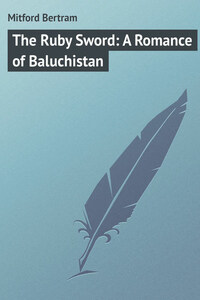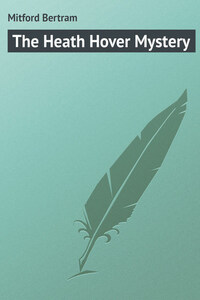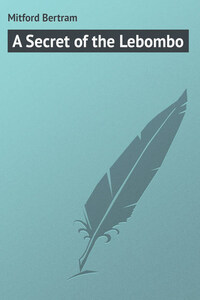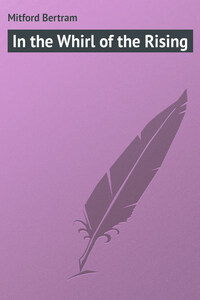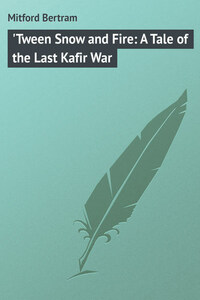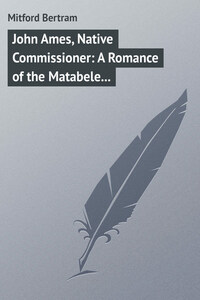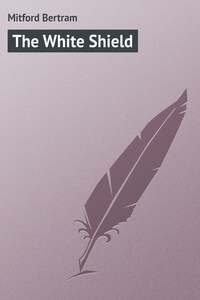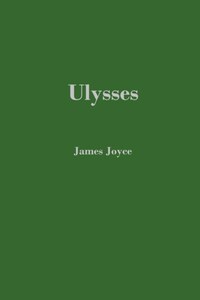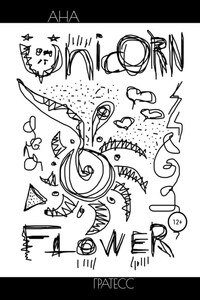“We love to roam, the wide world our home,
As the rushing whirlwind free;
O’er sea and land, and foreign strand,
Who would not a wanderer be!
“To the far off scenes of our youthful dreams
With a lightsome heart we go;
On the willing hack, or the charger’s back,
Or the weary camel slow.”
Thus sang the wayfarer to himself as he urged a potentially willing, but certainly very tired hack along the stony, sandy road which wound gradually up the defile; now overhanging a broad, dry watercourse, now threading an expanse of stunted juniper – the whole constituting a most depressing waste, destitute alike of animal, bird – or even insect – life.
The wayfarer sang to keep up his spirits, for the desolation of the surroundings had already begun to get upon his nerves. He was thoroughly tired out, and very thirsty, a combination of discomfort which is apt to get upon one’s temper as well. His steed, a sorry quadruped at best, seemed hardly able to put one leg before another, wearied out with a long day’s march over arid plains, where the sun blazed down as a vast burning-glass upon slabs of rock and mounds of dry soil, streaked white here and there with gypsum – and now the ascent, gradual as it was, of the mountain defile had about finished both horse and rider.
Twice had the latter dismounted, with a view to sparing his worn-out steed by leading it. But the exasperating quadruped, in shameful disregard of the superabundant intelligence wherewith popular superstition persists in endowing that noble – but intensely stupid – animal the horse, flatly refused to be led; standing stockstill with every attempt. So his efforts in the cause of combined humanity and expediency thus defeated, the wayfarer had no alternative but to keep his saddle, where, sitting wearily, and with feet kicked limply from the stirrups, he now and then swung a spur-armed heel into the bony ribs – which incentive had about as much effect as if applied to an ordinary jog the while he went on half singing, half humming, to himself:
“There’s a charm in the crag, there’s a charm in the cloud,
There’s a charm in the earthquake’s throe;
When the hills are wrapt in a moonlit shroud
There’s a charm in the glacier’s snow.
“We bask in the blaze of the sun’s bright rays
By the murmuring river’s flow;
And we scale the peak of the mountain steep,
And gaze on the storms below.
“For use around a snug camp fire, that would be an excellent traveller’s song,” said this one to himself – “But in the present instance I fear it will be ‘gaze on the storms above,’ and I don’t like it.”
Away up the pass a dark curtain of cloud, ominous and now growing inky black in the subdued light following upon sunset, seemed to justify the wayfarer’s foreboding. It was distant enough as yet, but hung right over what would surely be the said wayfarer’s path.
“No, I don’t like it,” he went on, talking out loud to himself as he frequently did when travelling alone. “It looks very like a night in the open; nothing to eat, though there’ll be plenty to drink presently in the shape of rain-water, no shelter unless one can light upon an overhanging rock. A sweet country to be landed down in without any of the appliances of civilisation, and, from all accounts, not altogether a safe one for the homeless wanderer. Decidedly the prospect is gaudy. It positively corruscates with cheerfulness.”
For which grim irony there was ample justification. Sundown had brought no abatement of the boding oppressive heat, wherein not a breath of air was stirring. Great hills shot up to the fast glooming sky on either hand; now from the edge of the road itself, now from the valley bottom, in no part of great width – beyond the stony bed of the dry watercourse; their sides cleft here and there from base to summit by a jagged, perpendicular rift – black and cavernous – their serrated ridges piled on high in a confused jumble of sharp peak and castellated formation – the home of the markhoor and mountain sheep. Here a smooth, unbroken slab of rock, sloping at the well nigh precipitous angle of a high-pitched roof – there, at an easier slant, a great expanse of rock face, seamed and criss-crossed with chasms, like the crevasses on a glacier. No vegetation, either, to relieve the all pervading, depressing greyness, save where a ragged juniper or pistachio had found anchor along a ledge, or fringed the lip of some dark chasm aforesaid.
No turn of the road brought any relief to the eye – any lifting of the unconscious oppression which lay upon the mind; ever the same hills, sheering aloft, fearsome in their dark ruggedness, conveying the idea of vast and wellnigh untrodden fastnesses, grim, repellent, mysterious. Nor below did variety lie; the same lifeless juniper forest, its dreary trees set wide apart, its stoniness in places concealed by a coarse growth of grass, or sparse and stunted shrub. For of such are the wild mountain tracts of Baluchistan.
From an adjacent crag a raven croaked. The hoarse “cauk-cauk” cleft the air with a startling suddenness, breaking in as it did upon the lifeless and boding silence. High overhead a huge bird of prey circled in the now glooming twilight, as though searching with lingering reluctance for some sign of life, where there was no life, ere seeking its roost among the black recesses of yon cliff-walled chasm.
